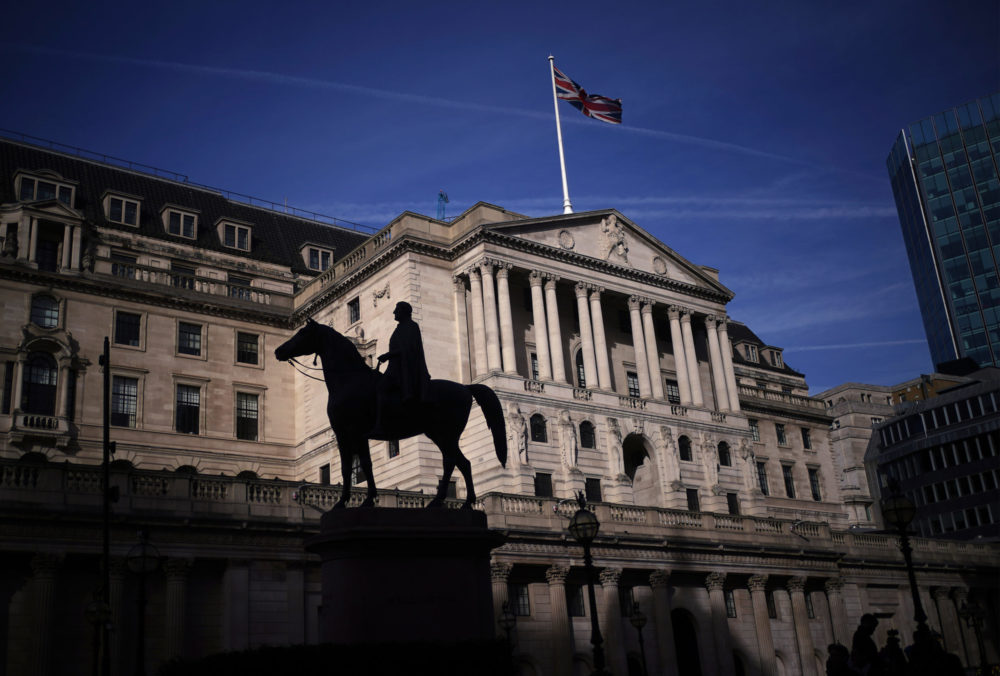Bank of England not yet ready to cut UK interest rates, experts say

UK borrowers may have to wait longer to see interest rates come down, as policy-makers look set to hold out for stronger signs that the cost-of-living crisis has abated.
The Bank of England’s Monetary Policy Committee (MPC), which sets the level of UK interest rates, will announce its latest decision on Thursday.
Economists are widely expecting the committee to keep rates at the current level of 5.25%, which it has been held at since August last year.
It means that borrowers holding out for costs to come down could have to wait longer before pressure starts to ease.
No change
At the last meeting in March, just one member of the MPC, Swati Dhingra, voted for rates to be cut by 0.25 percentage points, but the remaining eight members voted for no change.
Philip Shaw, chief economist at Investec, said: “This broad direction illustrates that collectively the committee is moving gradually towards a rate cut.
“It seems unlikely though to be ready to bite the bullet just yet and the Bank rate looks set to remain on hold at 5.25% for the sixth consecutive meeting.”
He added that it is possible that a second member of the MPC will switch to the “easing camp” and vote for a cut on Thursday.
Inflation
Interest rates are used as a tool to help bring down UK inflation, which has fallen sharply from the highs hit in 2022 when energy costs spiked and the cost-of-living crisis was at its peak.
The rate of Consumer Prices Index (CPI) inflation fell to 3.2% in March, according to the latest official figures.
But experts suggested that two key economic indicators for the Bank of England – pay growth and services sector inflation – have remained more stubborn.
Average wages continued to increase faster than the rate of inflation last month.
Andrew Goodwin, chief UK economist for Oxford Economics, said: “The data published in mid-April for services inflation and private sector regular pay growth has likely extinguished any remaining hopes of a move in May.
“Though both measures have continued to fall, progress has been slightly slower than the MPC anticipated, and they are currently running marginally higher than the forecasts published in February’s Monetary Policy Report.”
He said it is likely to be a “close call” on whether the MPC decides to cut rates in June or August.
Investec’s Mr Shaw said he expects CPI inflation to have fallen to the target 2% level in May, which would prompt the MPC to cut interest rates to 5% when they next meet in June.
Economists at HSBC are also expecting the first rate cut to come in June.
The Bank of England will shed more light on its predictions for the economy and the path of interest rates when it publishes the latest Monetary Policy Report alongside the rates decision on Thursday.
Meanwhile, the central bank in the US, the Federal Reserve, said on Wednesday it was keeping its key interest rate at the same level and noted a “lack of further progress” towards lowering inflation.
It means rates could stay higher for longer until there is firmer evidence of price rises easing, its chairman Jerome Powell suggested.
Support our Nation today
For the price of a cup of coffee a month you can help us create an independent, not-for-profit, national news service for the people of Wales, by the people of Wales.







These are not experts.
There was no rationale for the increase in interest rates. The increased rates (internal) had no impact on inflation as its causes were external (Ukraine, Gaza let to come).
The MPC, et al, does not know what it is doing, and does not understand how the economy works.
For a US comparison on the wisdom of economists, you might try the chair of the Council of Economic Advisers, Jared Bernstein…
https://www.taxresearch.org.uk/Blog/2024/05/04/just-dont-ask-an-economist-how-the-government-funds-itself/.
Thanks to globally distinguished accountant, Professor Richard Murphy, whose blog is always excellent (www.taxresearch.co.uk).
We can thank the MPC and especially the Governor of the Bank of England, Treasury, the Chancellor Jeremy Hunt and the Prime Minister Rishi Sunak for their touching faith, nay, fervent belief in these experts and their acolytes in the various so-called thinktanks for the high interest rate policy. This latter has devastated many households and businesses, and decreased liquidity throughout the economy. This latter is being worsened by the BoE’s wholly unnecessary, counter-productive and irresponsible policy of quantitative tightening (QT). Sunak will, no doubt, say, as is his wont, that it was the right thing to do. Tell that… Read more »